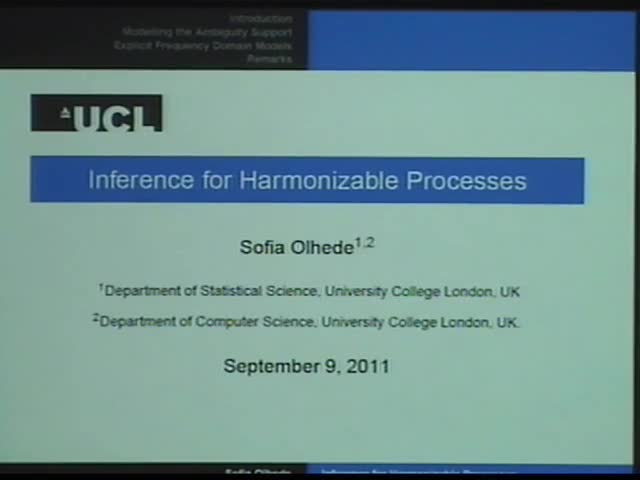Inference for Harmonizable Processes
Presenter
September 9, 2011
Keywords:
- Analysis methods, Fourier transform
MSC:
- 65Txx
Abstract
Most analysis methods for nonstationary processes are developed from using the local Fourier transform of the process. Such methods have the theoretical underpinning developed for a number of (overlapping) classes of processes, such as oscillatory processes (Priestley (1965)), and locally stationary processes (Dahlhaus (1997), Silverman (1957) and Grenier (1983)). These processes have strongly related inference mechanisms, that naturally tie in with the model specification. Unfortunately all of these methods rely on implicit strong smoothing of the data, removing much of the observed bandwidth of the process.
The class of Harmonizable processes is considerably larger than that of locally stationary processes. The representation of a harmonizable process in terms of the Loeve spectrum does not naturally suggest any given inference procedure. We shall discuss possible subsets of harmonizable processes for which inference is possible, and discuss natural specification of such inference methods. We shall also treat practical examples in neuroscience and oceanography, showing how viewing a process as harmonizable may yield important insights into the data.
This is joint work with Hernando Ombao and Jonathan Lilly, sponsored by the EPSRC.
